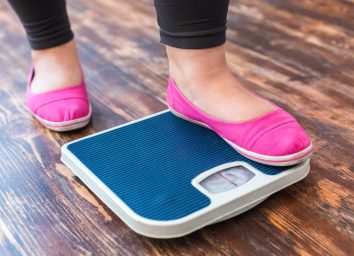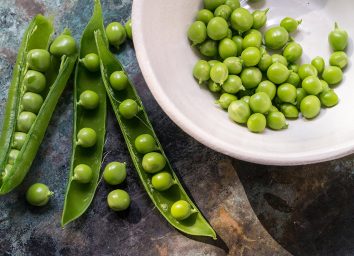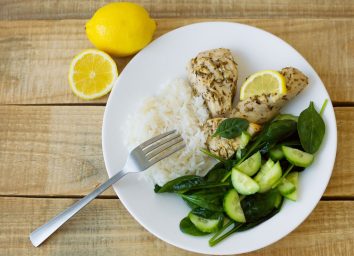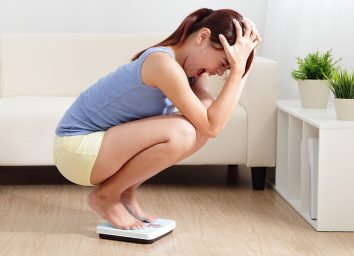25 Best Weight Loss Tips Straight From Doctors

Losing weight may seem like an impossible task, especially with the rise of many fad diets. But according to numerous doctors, losing weight doesn't have to be so complicated. That's why we spoke to a few notable MD experts about doctor-approved weight loss tips that will help you shed the pounds—for good!
These helpful nuggets of wisdom are small changes you can make in your everyday life that can help you lose weight. As always, make sure to talk to your physician about their weight loss tips for you and the next best steps. And for more help staying on course, here are The 7 Healthiest Foods to Eat Right Now.
Drink more water

"The first tip I usually recommend to anyone whether it's patients or people I come across is to increase your water intake," says Dr. Cedrina Calder, M.D. "The vast majority of people do not get adequate water intake throughout the day. So drinking more water helps because that has been shown to increase your metabolism, and it will also help to give off extra water weight that you may be carrying around, too. And just in general it keeps you hydrated. It's needed for all different processes that your body does."
Want to make sure you're getting your H2O fix the right way? Here are 16 Ways You're Drinking Water Wrong.
Eliminate sugar-sweetened beverages

Dr. Calder said to keep a close eye on beverages that are high in sugar, like juice and soda. "Even some of the beverages that have been pushed on us as being 'healthy,' a lot of times are packed with extra sugars," says Dr. Calder.
Just how bad is soda for your overall health? Check out the 108 Most Popular Sodas Ranked by How Toxic They Are to find out.
Drink less alcohol
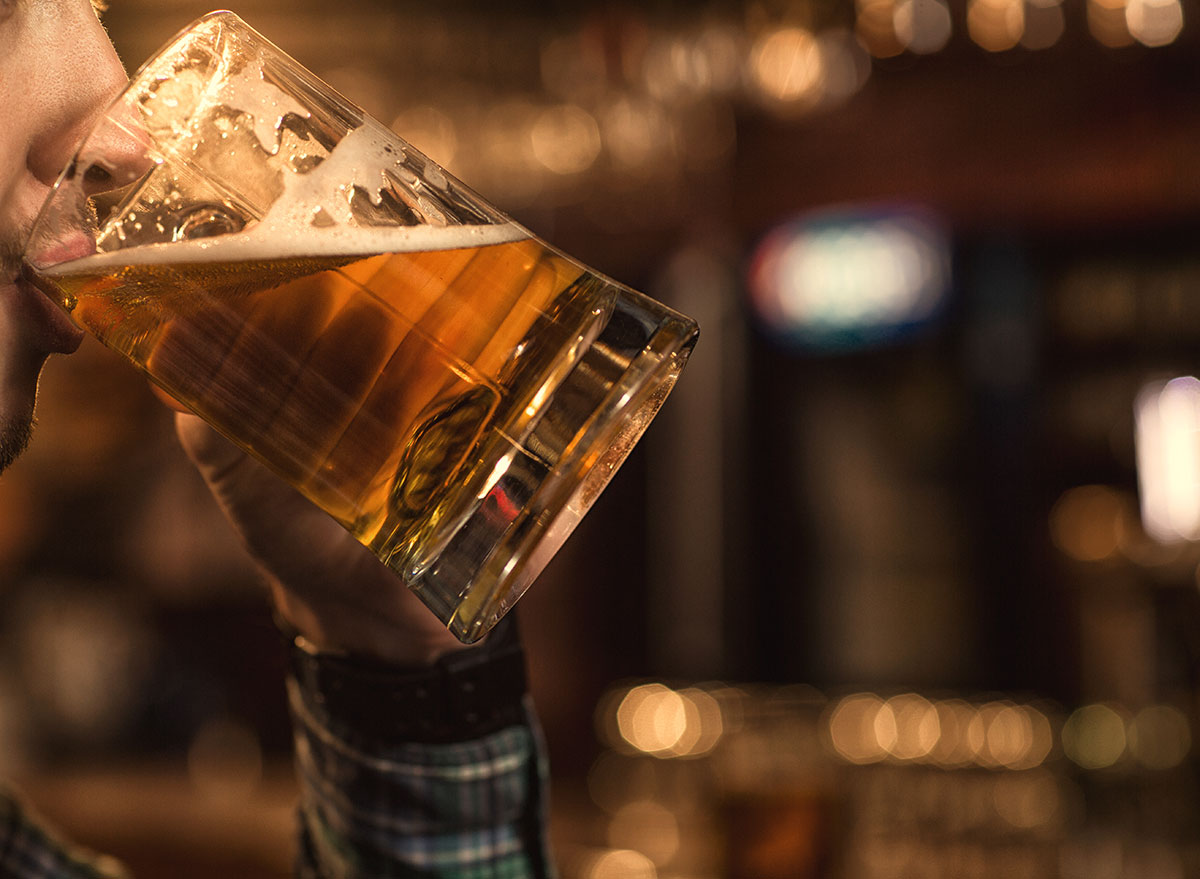
Yes, it's nice to enjoy a glass of vino, and wine can even be beneficial for your health. But drinking the whole bottle in a sitting may not be the best option, according to these doctors' weight loss tips.
"[When] drinking alcohol, people sometimes don't realize how many calories that can pack," says Dr. Calder. "Like mixed drinks, when you're adding juices and sodas and things like that with the alcohol, that's also empty calories that you're consuming."
Monitor portion sizes
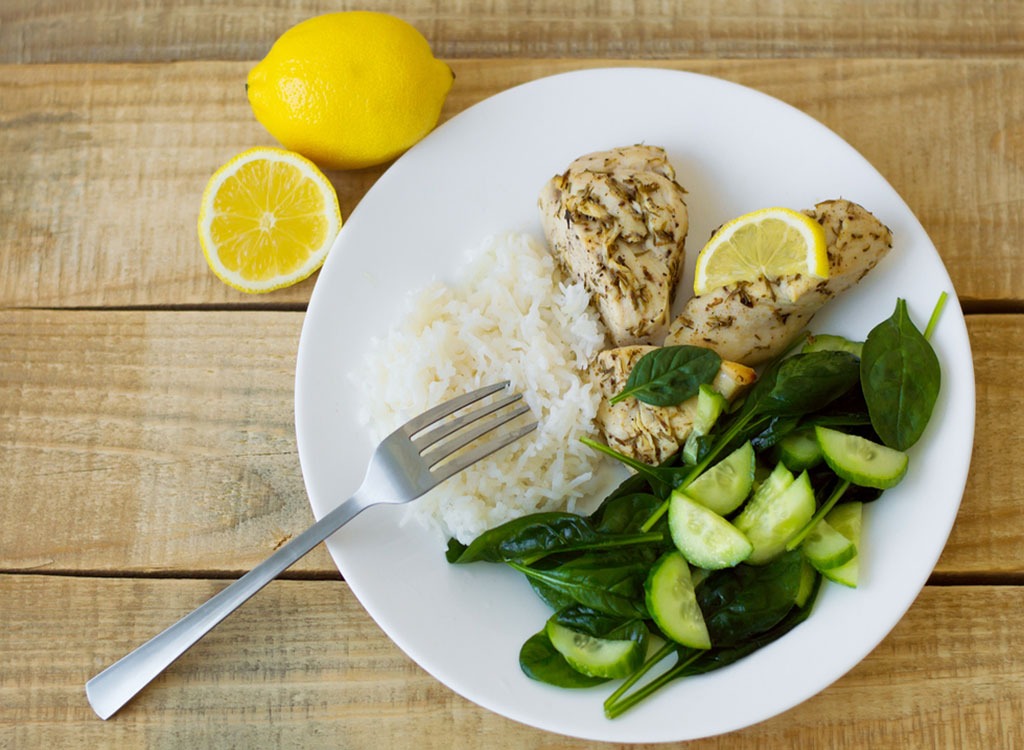
It may seem tedious, but counting out your portion sizes will make a huge difference when it comes to weight loss. "I think a lot of people are eating larger portions than they realize, so if you're eating huge portions at a time, you're obviously going to be taking in more calories than if you were eating smaller portion-sized meals," says Dr. Calder.
Cook at home
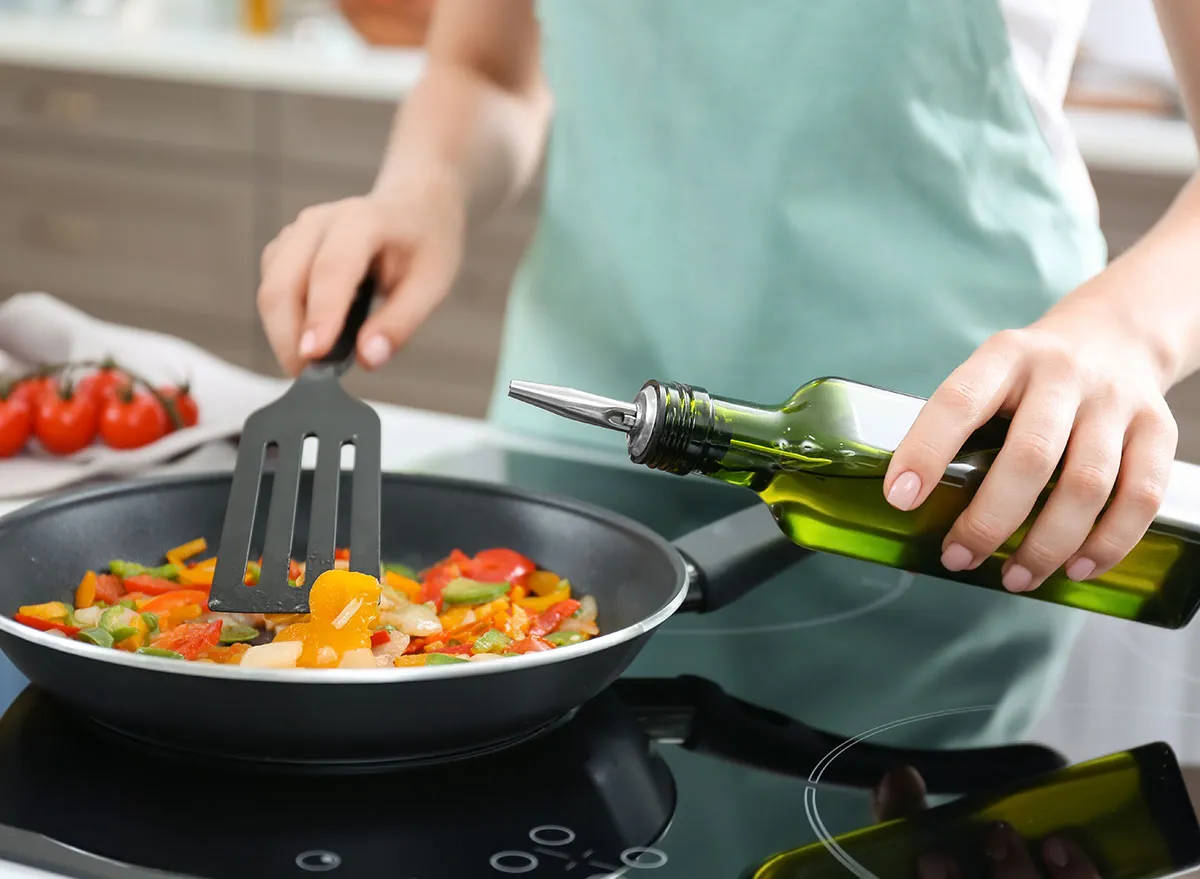
Yes, you really can make healthier recipes right at home. Even if ordering out may seem more convenient, you'll be able to see the difference in the scale if you start to cook your meals.
"When making food at home, you can control what's in it when you're cooking it," says Dr. Calder. "So rather than eating out all the time, a lot of foods that are offered in restaurants are packed with calories and packed with a lot of ingredients that may not be as healthy."
Need some healthy (and easy!) dinner inspiration? Be sure to sign up for our newsletter to get daily recipes and food news in your inbox!
Prep your food for the day
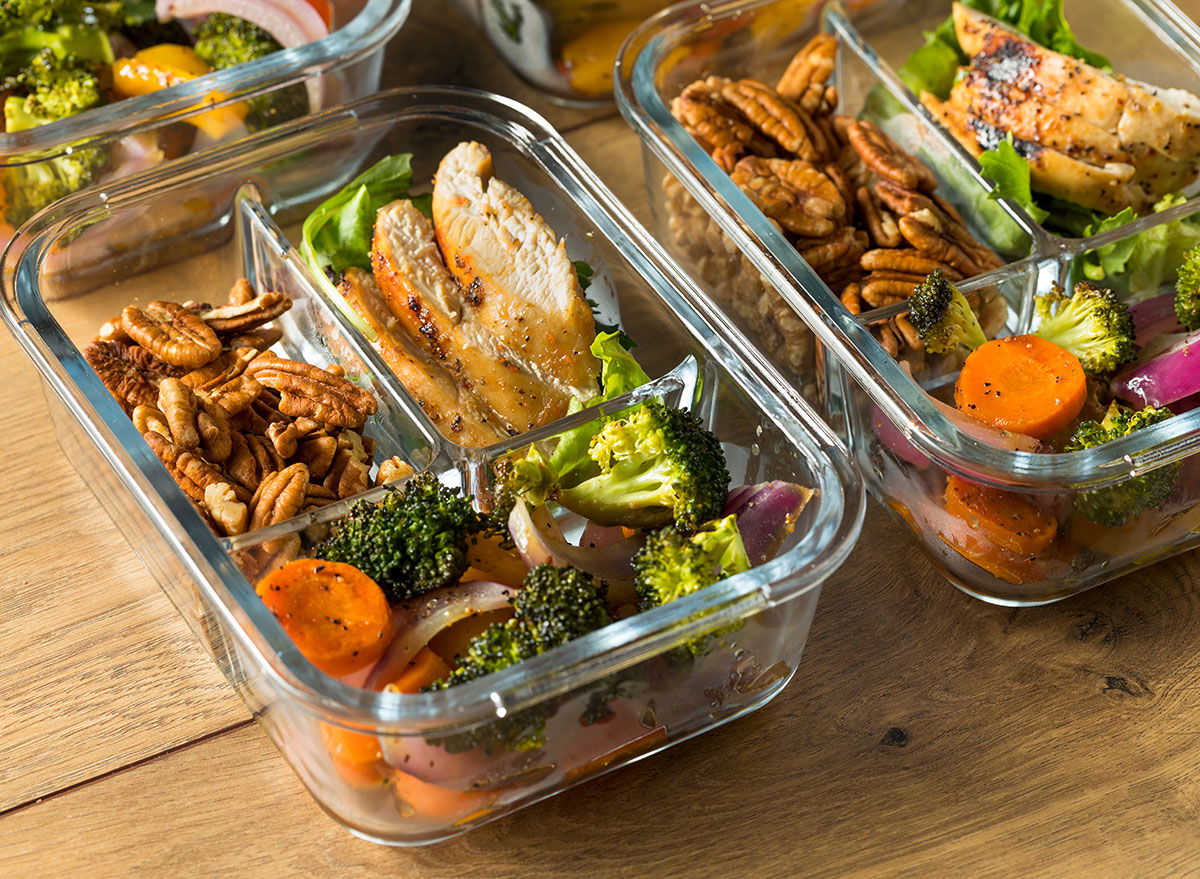
Hopping on the meal prep train will be extremely helpful for your weight-loss goals.
"If you have food with you, if you are prepared before you go to work for the day and you have a few meals packed with you, you don't have to worry about being tempted to eat snacks and other things," says Dr. Calder. By packing your lunch and snacks, you'll be prepared for when hunger strikes, instead of rushing to the closest fast-food restaurant or grabbing an office donut or vending machine snack.
Increase your protein intake
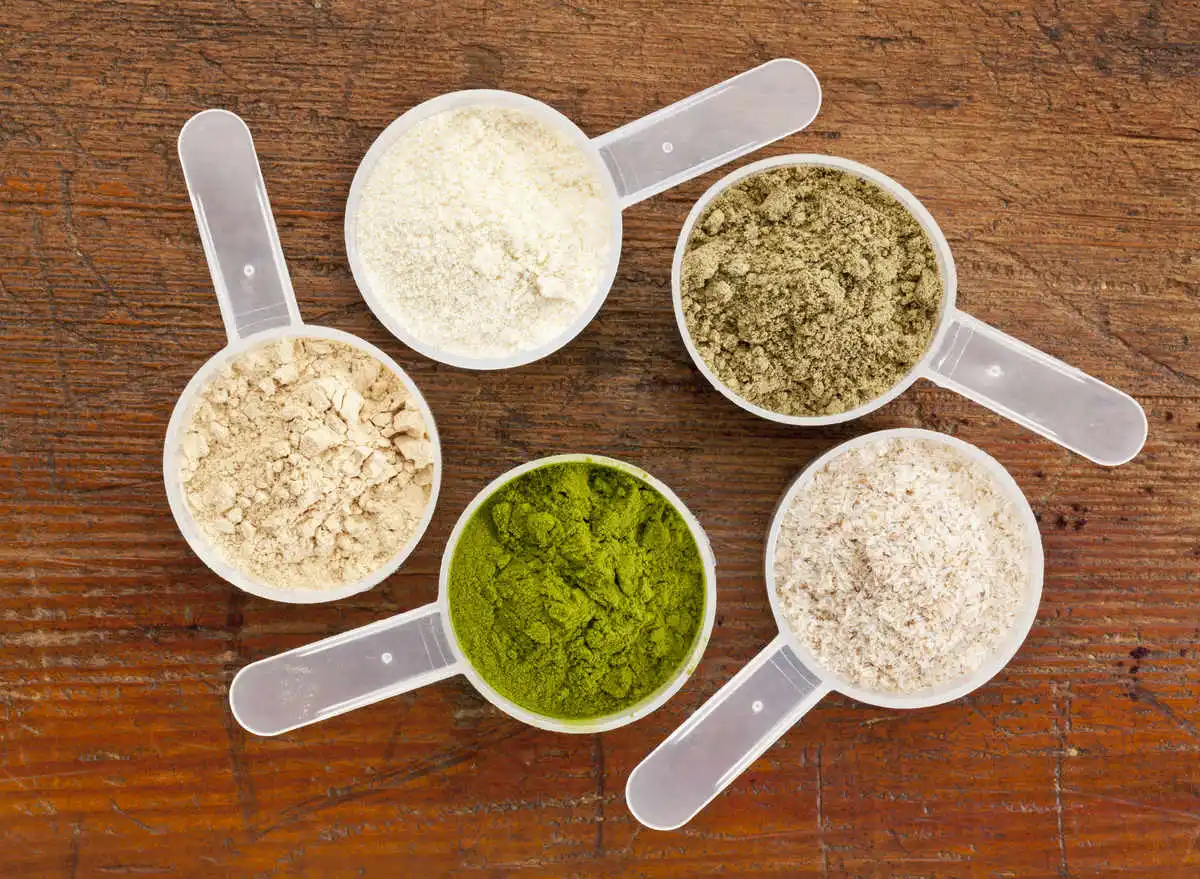
"Protein helps you feel fuller longer and helps to increase your metabolism as well," says Dr. Calder. She recommends lean proteins like lean cuts of meat and steak, fish or other seafood, turkey, chicken, and leaner ground beef. For vegetarians, you can find healthy protein sources in foods like tofu or different soy products. Dr. Calder also recommends whey protein in a protein shake, which will help curb your hunger for a few hours. Just make sure to not buy anything with extra sugars, she says. Plain whey protein powder works well, too.
Eat more vegetables and fruits

Dr. Calder recommends increasing the number of vegetables and fruits you eat. She says that green, leafy vegetables are packed with nutrients while still being low in calories. When you're eating fruit, stick with more moderate amounts because fruits can still have a lot of sugar in them. Eating more fruits and vegetables is a good way to help you feel full from eating low-calorie foods.
Eat less starches
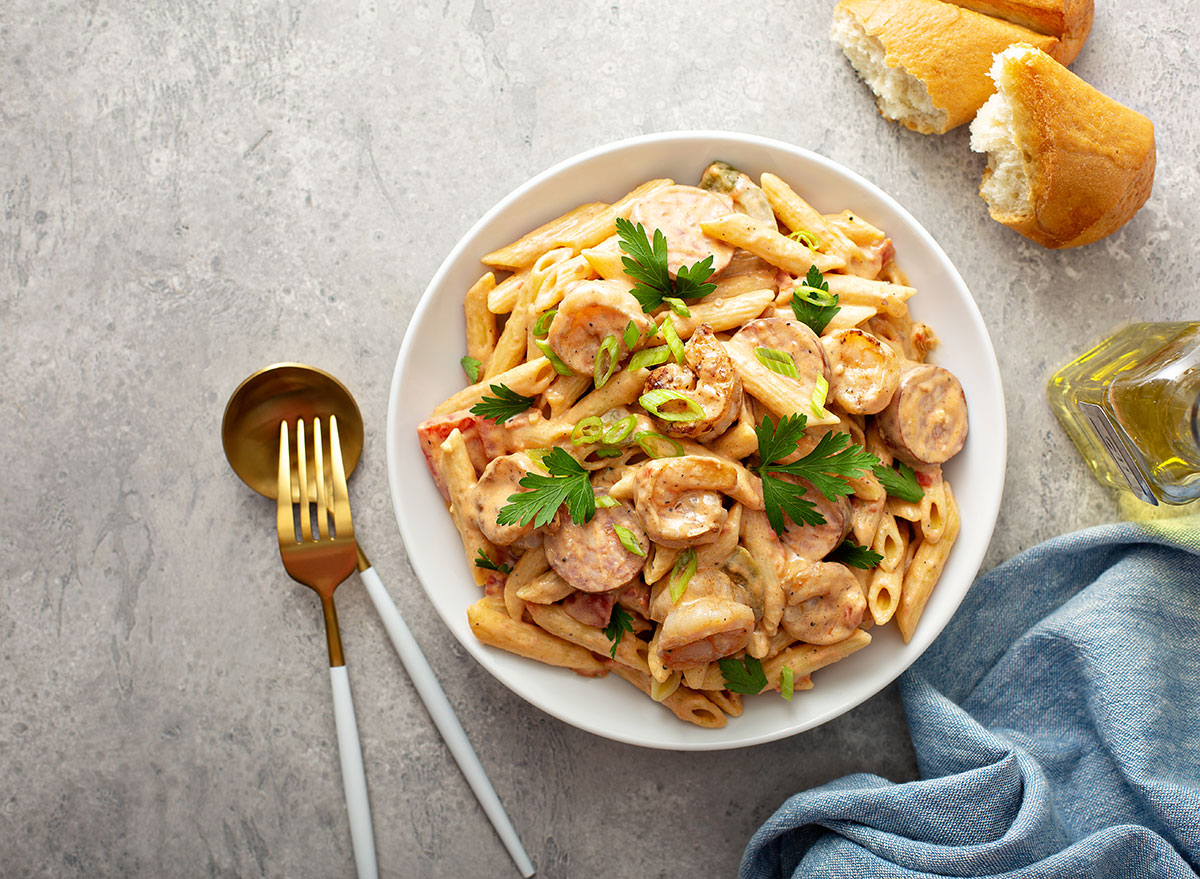
"I think the average American diet is very high in starches," says Dr. Calder. This can spell bad news for the scale if you're trying to lose weight. If you're not that active and you eat a lot of starches, your body won't use that energy it's taking in, so it's just going to be stored as fat and you're going to gain weight.
"If you're trying to lose weight, try decreasing the number of starches you're eating," says Dr. Calder. "Not eliminating them, I'm not necessarily saying you should go keto. Decrease your amount of starches, and focus on eating more whole grain sources of carbs." She recommends reducing the refined carbs from your diet and eating more whole grains instead because most have more fiber and nutrients in them.
Get physically active

"Not only should you modify your diet, but you need to increase your amount of physical activity," says Dr. Calder. "If you're not doing anything, you want to slowly increase your physical activity for a period of time and aim for the recommended amount of 150 minutes of physical activity per week. People say that in order to do physical activity, you have to have a gym membership, and that's not true. You can do physical activity by doing household chores, mowing your lawn, watering, cleaning around the house, taking a walk. Any type of movement is physical activity. It doesn't have to be going to a gym and getting on a machine."
Get started with one of these easy exercises that boost your health fast.
Start resistance training

"With increased muscle mass, you'll have a higher metabolism," says Dr. Calder. "That will help you burn off more calories. And as you age it's protective, because it helps to decrease your risk of injuries [and] your risk of falls. You'll have better balance and be stronger, decreasing your risk of fractures because you're at a lower risk of falling as well."
Get adequate sleep

"Your body needs to be fully rested," says Dr. Calder. "You want to aim for 7 to 9 hours a night, but you want to make sure it's restful sleep, it's good quality. Not where you're just waking up every hour, that's not good sleep that will be helpful. So you want to create an environment where you're able to get good quality sleep." She also mentions that a lack of sleep can increase cortisol levels and contribute to weight gain.
Focus on mindful eating
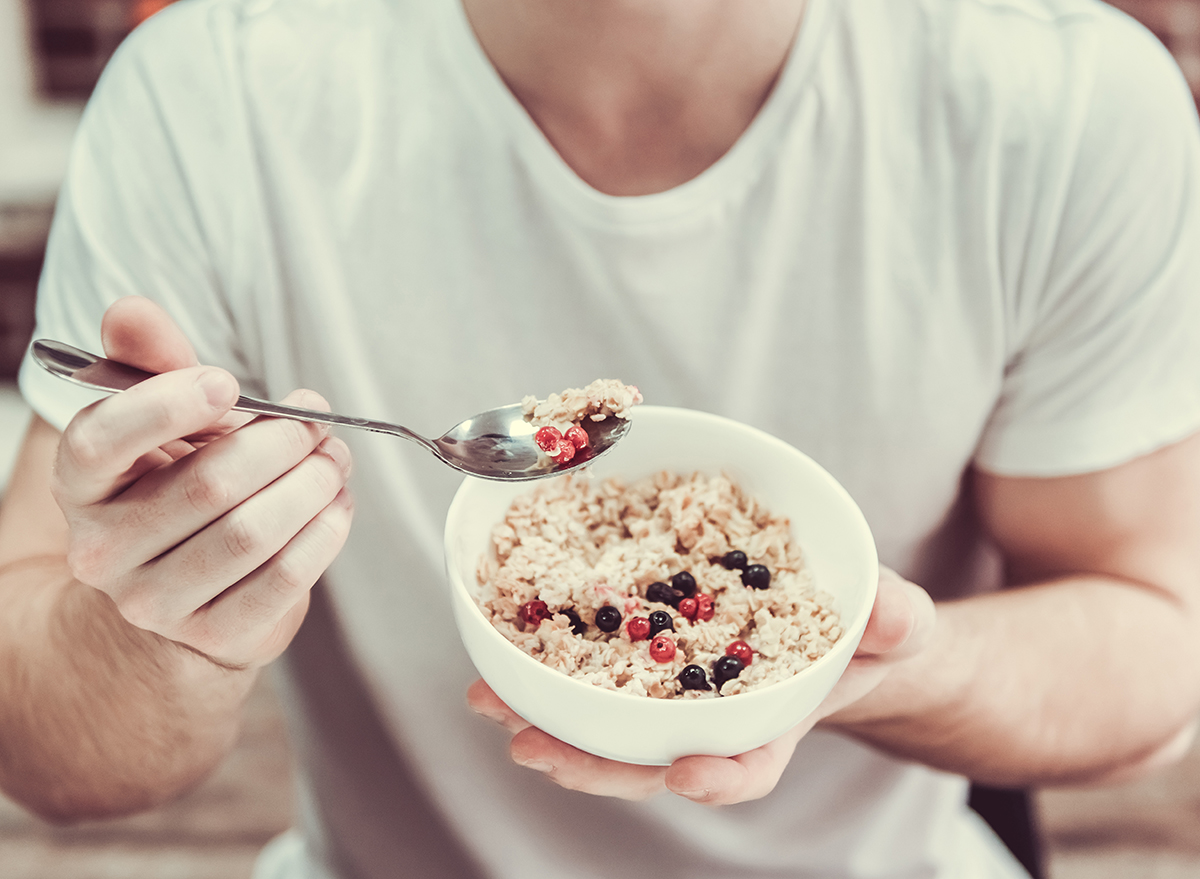
"Really [think] about the food that you're eating," says Dr. Calder. "Eat it slowly, savor it. Not in front of a TV or playing on your phone or on the computer. Those things kind of take your mind off of the fact that you're eating, and you'll end up eating more than you would if you were just taking time to eat and eat only. Practicing mindful eating will help decrease the amount of food you're consuming. And obviously, less food, less calories, and that will help with weight loss as well."
Try wheatgrass shots
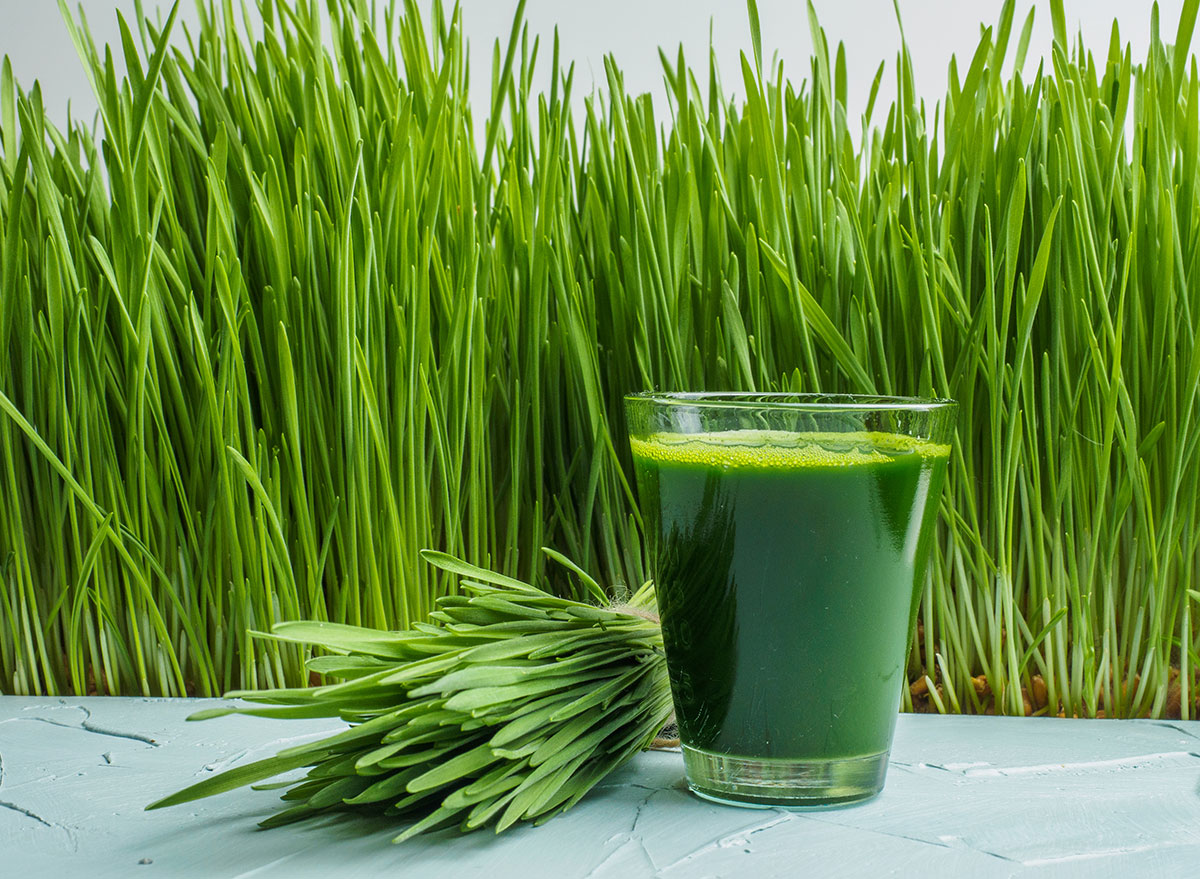
Adding a shot of wheatgrass to your daily routine can have incredible benefits. According to Dr. Daryl Gioffre, celebrity nutrition expert and founder of Alkamind, wheatgrass is one of the most powerful foods on the planet and one of the most effective ways to detox and build your blood.
"It has a very high alkaline effect on the body," says Dr. Gioffre. "One of the ingredients with major benefit in wheatgrass is chlorophyll, which has the ability to draw toxins from the body like a magnet. The reason why chlorophyll is so powerful is it's basically the same molecular shape as your hemoglobin molecule (red blood cells), except for the center atom, where blood is iron and chlorophyll is magnesium."
While Dr. Gioffre recommends a two-ounce shot at least once a day, you shouldn't drink it like a tequila shot. Instead, he suggests taking a sip, swishing it in your mouth for 30 seconds, and then swallowing. Do that again and one more time until the entire shot is gone. You can even use some cinnamon as a chaser!
Stock up on Greek yogurt
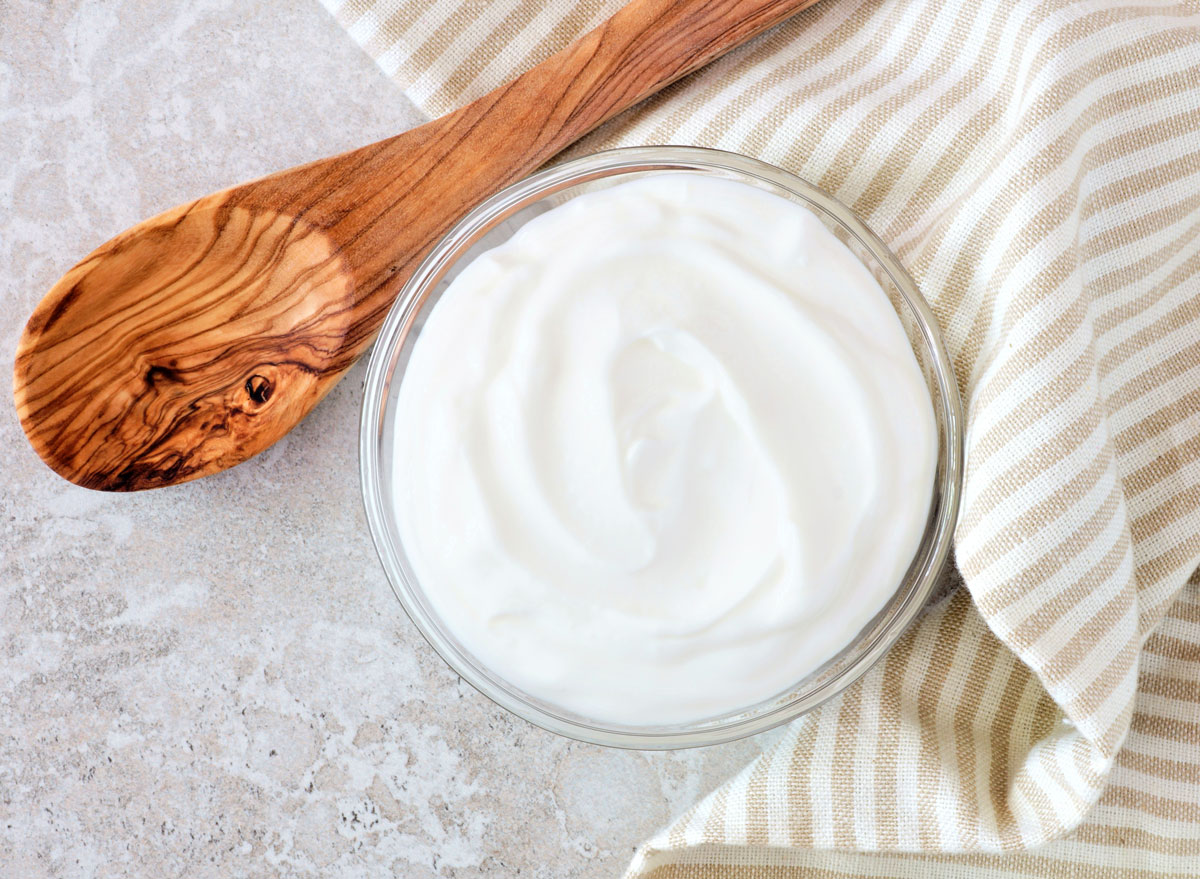
"Greek yogurt is great for palatability, satiation, and protein content," says Gerard Mullin, M.D., author of The Inside Tract: Your Good Gut Guide to Great Digestive Health. "Yogurt is also great for feeding the good bugs that live in your intestine, which improves the health of your microbiome, the community of microorganisms that live in your body. More and more research is pointing to probiotics as an effective treatment for weight management and obesity. It's amazing that feeding the good bugs actually helps people lose weight. Organic, grass-fed yogurt is best because you are getting a better omega fatty acid profile. When animals are fed corn, they produce dairy with more omega-6s, but grass-fed animals produce dairy with more healthy omega-3s."
And so you know which yogurts to seek out and which to avoid when you're shopping, we rounded up the best and worst Greek yogurts, according to nutritionists.
Cut back on caffeine
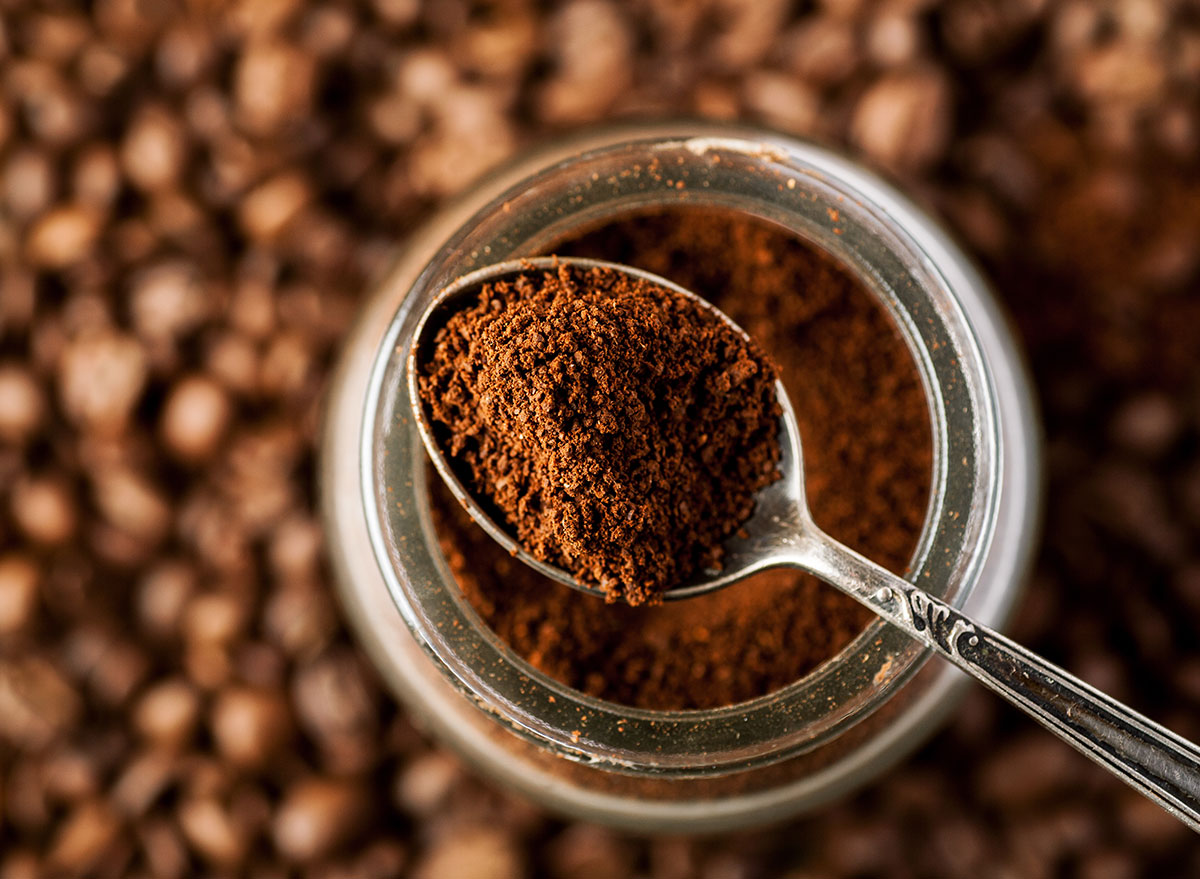
"I try to avoid excessive caffeine," says Dr. Mamta M. Mamik, MD. "An adult can safely consume up to 400 milligrams of caffeine a day, which is equivalent to four 8-ounce cups of coffee. But drinking any more than that can cause calcium excretion, which, over time, may lead to osteoporosis. Avoiding excess caffeine also helps to ward off uncomfortable withdrawal symptoms like lethargy, insomnia, headaches, and irritability."
Eat more dark, leafy greens
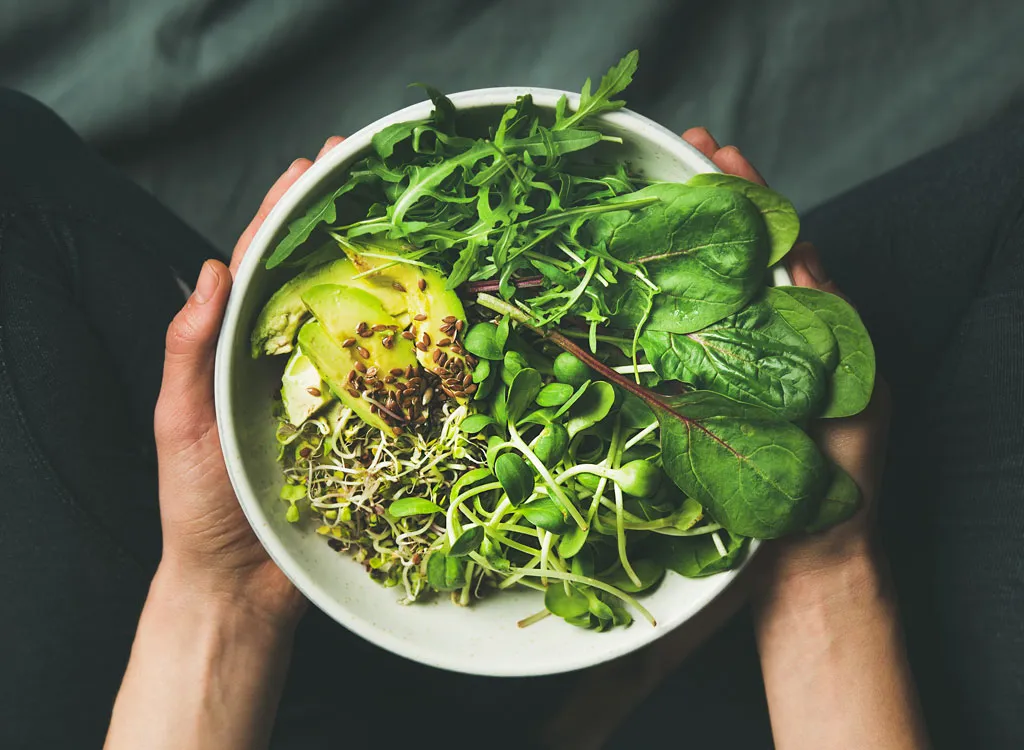
"For me, the best food is dark greens, such as arugula, spinach, and lettuce," says Donald D. Hensrud, M.D, M.P.H., chair of the Division of Preventive, Occupational, and Aerospace Medicine at the Mayo Clinic College of Medicine and author of The New Mayo Clinic Cookbook. "They are very low in calories, very high in nutrients, and can be prepared in a variety of ways that taste great—many different types of salads, pasta dishes, lasagna, sandwiches, pesto, soups, or even a spinach pie! There's no downside."
Add chickpeas to your diet
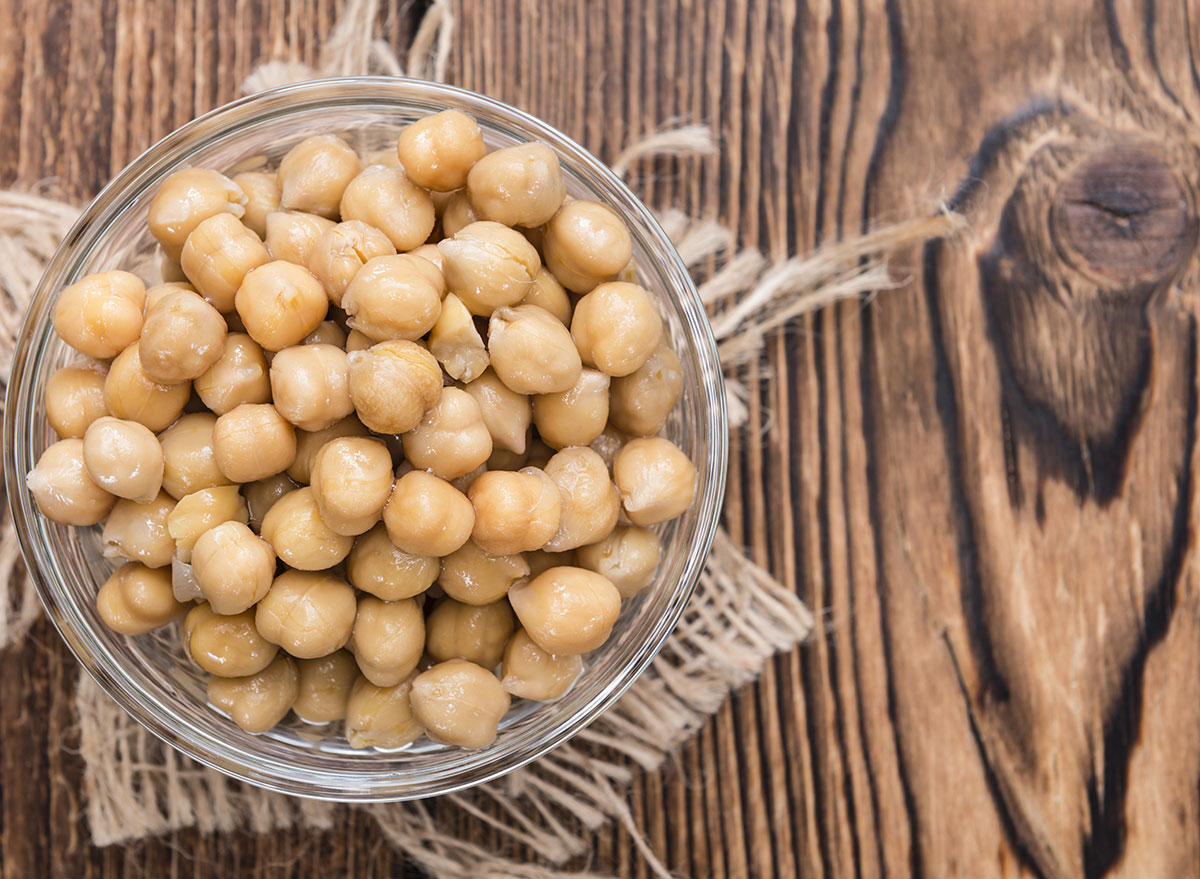
"Chickpeas are, of course, a nutritional powerhouse, like most legumes. They are a good protein source, and I especially like turning to chickpeas for protein so I don't need to eat meat," says David L. Katz, M.D., M.P.H., F.A.C.P.M., F.A.C.P., founding director of the Yale University Prevention Research Center and author of Disease-Proof. "They have figured in the human diet since the very dawn of civilization, so they are a nice connection to our ancestral roots. And they figure as well in some of my favorite cuisines from the Middle East. I love good hummus!"
Eat more eggs
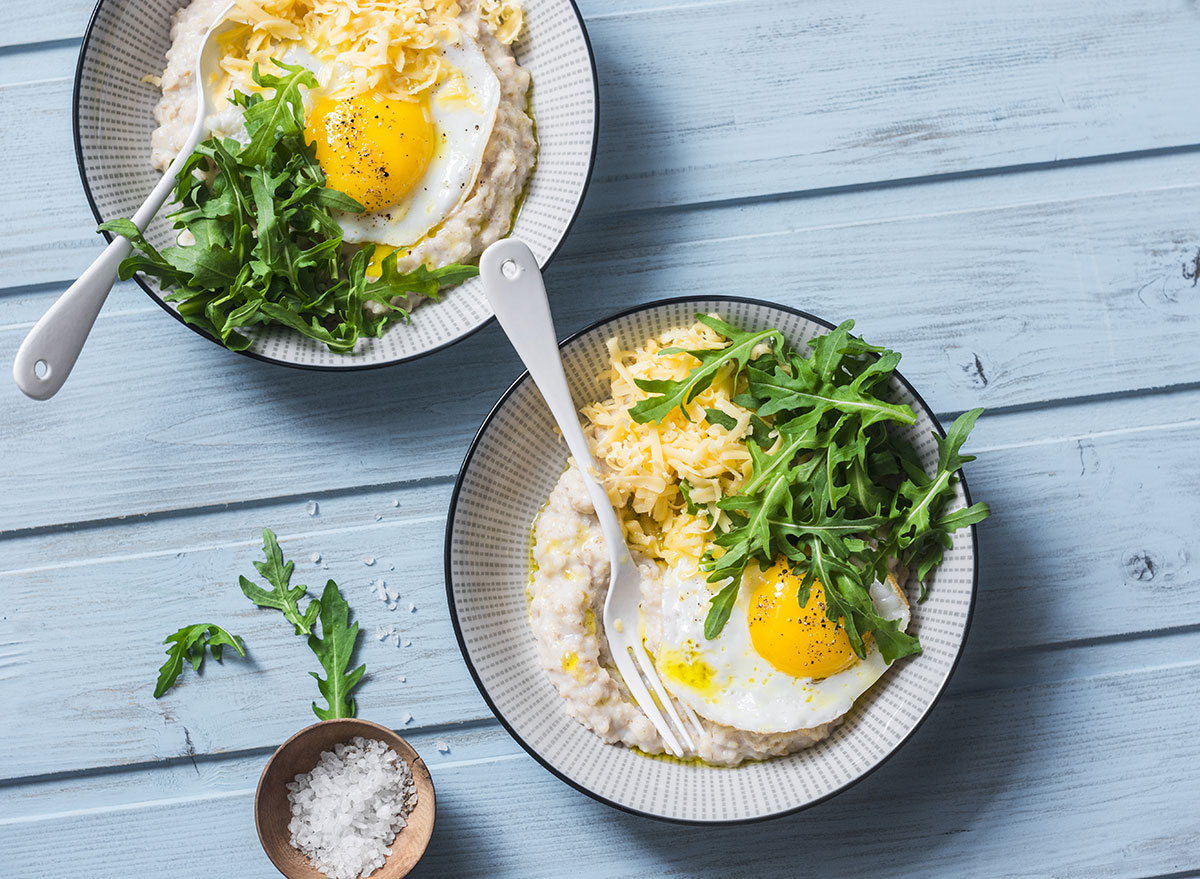
"[Eggs] have lots of high-quality protein, especially tryptophan," says Robert Lustig, M.D., M.S.L., Professor Emeritus of Pediatrics, Division of Endocrinology at the University of California, San Francisco (UCSF). "Protein is satiating, and also you spend more energy converting it to a metabolite that can be burned, which aids in weight management. Eggs got a bad rap in the 1980s because of the cholesterol in the yolk. But it does not raise the small dense LDL, which is the atherogenic particle [the one that forms plaques in your arteries]. Eggs are great by themselves, with many different ways of preparation, or they can be added to foods easily."
Feel fuller with avocados
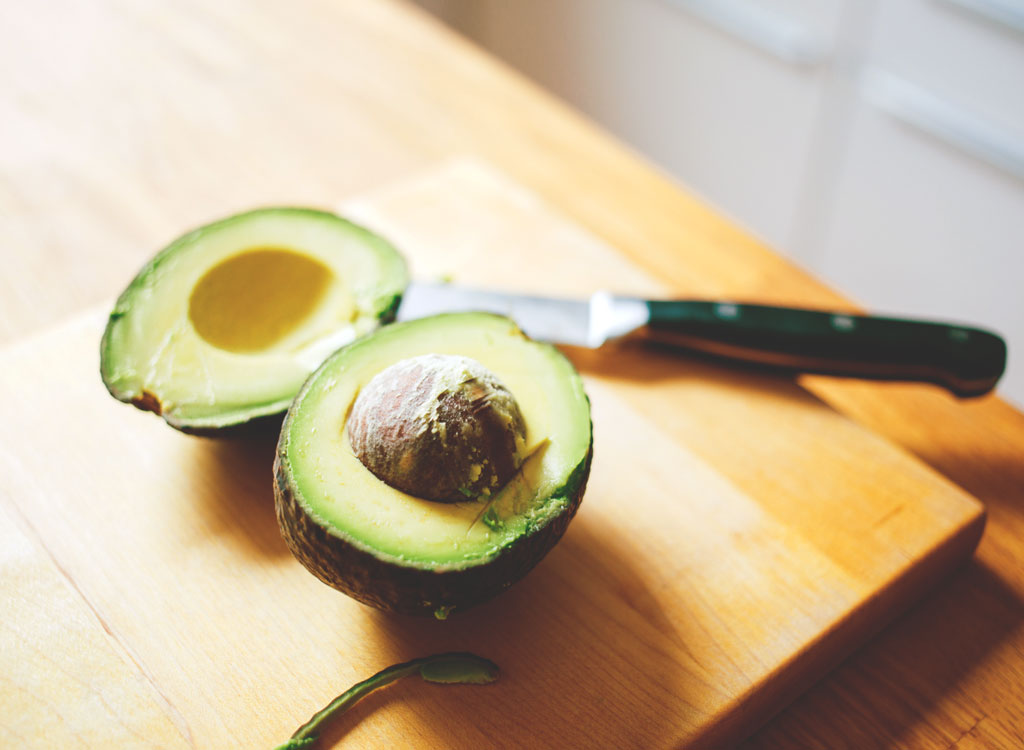
"I swear by avocados!" says Taz Bhatia, M.D., Founder of CentreSpringMD and author of The 21-Day Belly Fix. "The heart-healthy unsaturated fat in a delicious serving of avocado helps me stay full, which keeps me from snacking too much. Avocados are packed with vitamins C, K, and B6, and they contain pre- and probiotics, keeping my gut healthy."
Add more nuts (or nut butters) to your diet
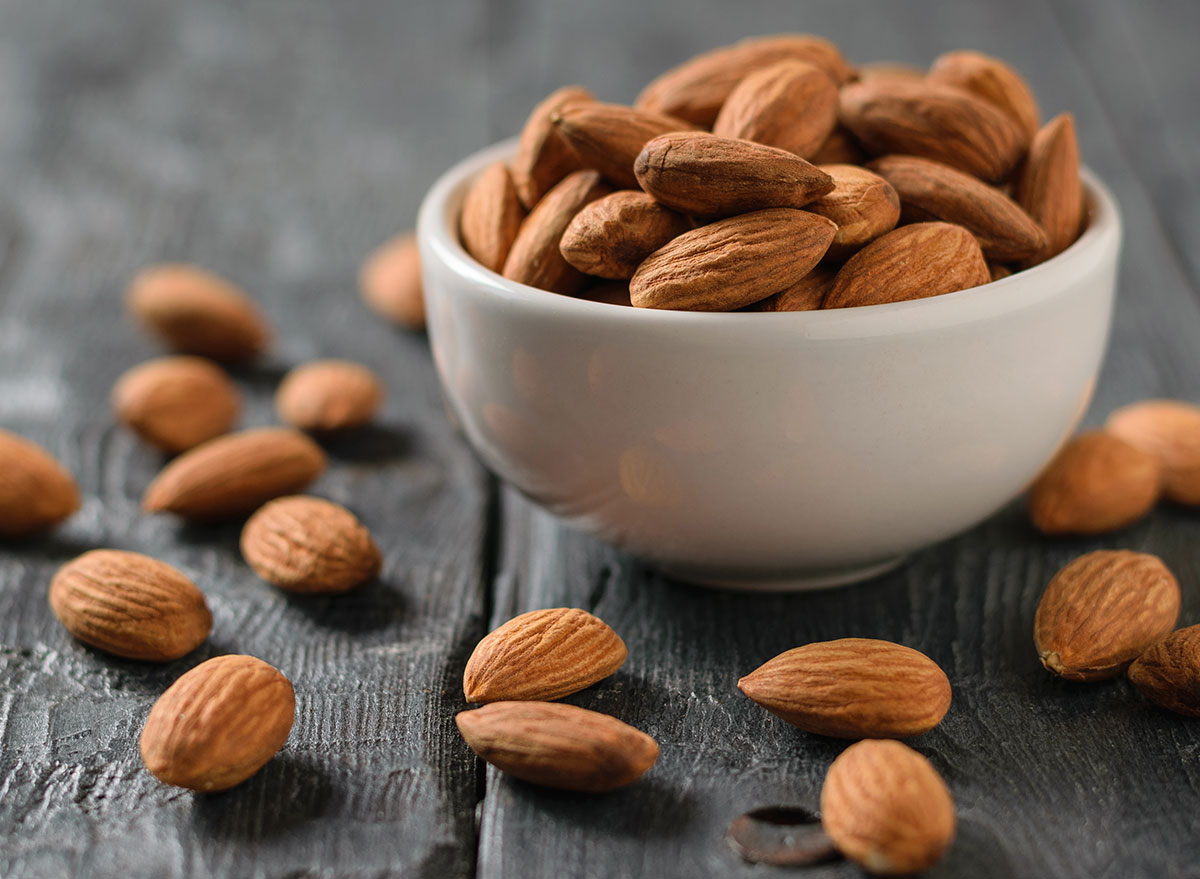
"The one kind of food that most helps me live healthfully is nuts, and for me, any nut will do," says Yoni Freedhoff, M.D., medical director of the Bariatric Medical Institute at the University of Ottawa, author of The Diet Fix: Why Diets Fail and How to Make Yours Work. "Study after study suggests that their inclusion in [a] diet helps prevent many chronic diseases. They are full of protein and healthy fats that leave me feeling fuller longer, which in turn helps me all day long with dietary restraint. One trick I like to do is buy a cheap 1/4-cup measuring cup to store with my container of nuts. Nuts are quite energy-dense, with each 1/4 cup of whole nuts coming in at around 200 calories."
Dr. Calder also recommends nuts as a snack, but in the form of nut butter. "Even spreading some peanut butter on some whole-grain bread will help make you feel fuller," she says. "The fat in the peanut butter, fat in general, helps to curb your hunger a little bit. You can snack on healthier things like nuts and seeds. Those are great sources of fat."
Avoid added sugar
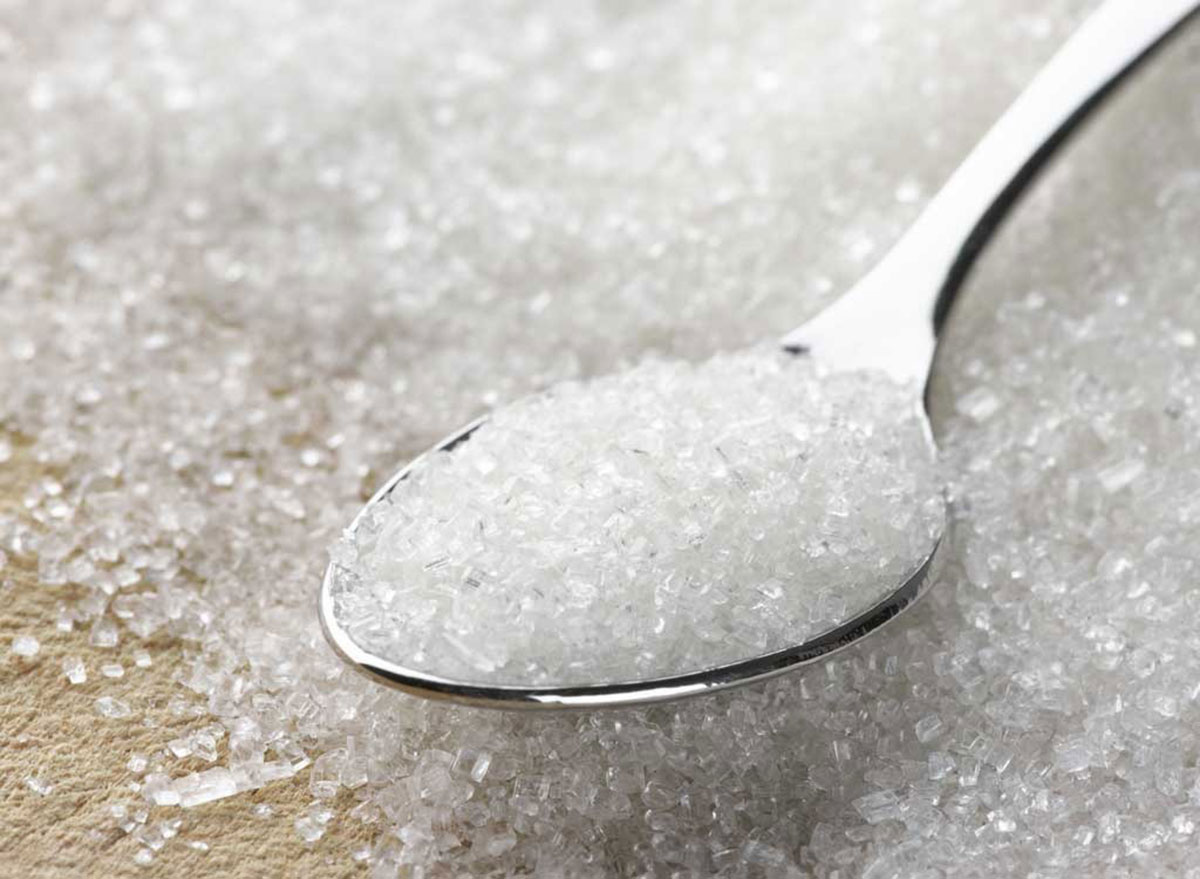
"I try to avoid foods that contain trans fats, corn syrup, and added sugars," says Eugenia Gianos, MD, cardiologist, Co-Clinical Director, Center for the Prevention of Cardiovascular Disease at NYU Langone Medical Center. "Often listed as hydrogenated or partially hydrogenated oils, synthetically engineered trans-fats increase your bad (LDL) cholesterol levels and decrease your good (HDL) cholesterol levels, upping your risk of heart attack and stroke."
And for more ways to dial back on added sugars, see the best no-added-sugar snacks.
Know your deli meat ingredients
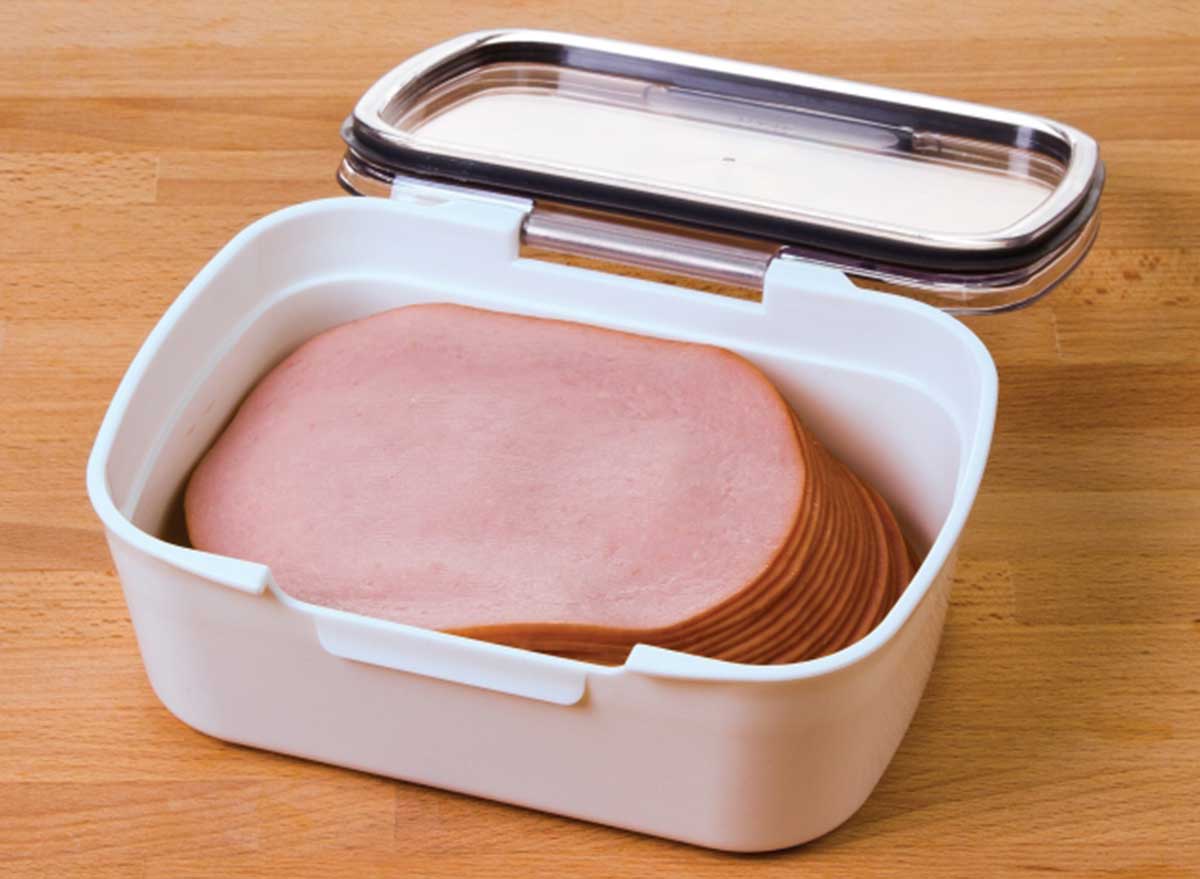
"For those who eat meat, processed varieties are a bad choice," says Dr. Katz. "While the link between meat and chronic disease is fairly tenuous, the connection between salt-, sugar-, and chemical-laden processed meats and chronic disease risk is strong and consistent. If you eat meat, it should be pure, like you want your own muscles to be. If you eat the highly processed, adulterated meats, they may pay it forward to the meat on your own bones."
Watch out for granola or "energy" bars
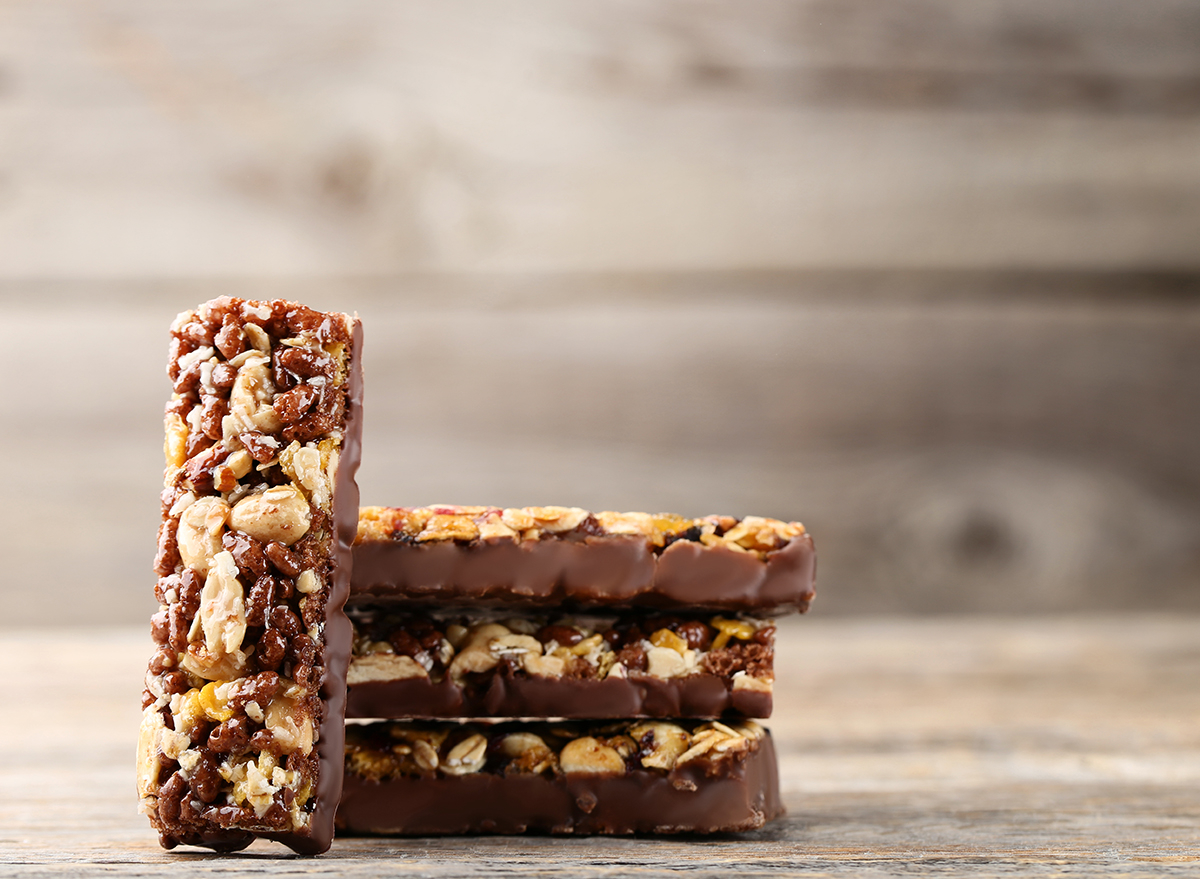
"As a plastic surgeon, I'm always thinking about my figure," says New York City-based physician Lara Devgan, MD. "To that end, I never eat energy bars or granola bars. Although they can be tasty, for the amount of calorie-dense carbs and fat they contain, you might as well eat a candy bar. Many of these bars are packed with simple sugars, and they aren't quite filling enough to substitute for a meal or snack."
Choose when to have your "cheat" meal
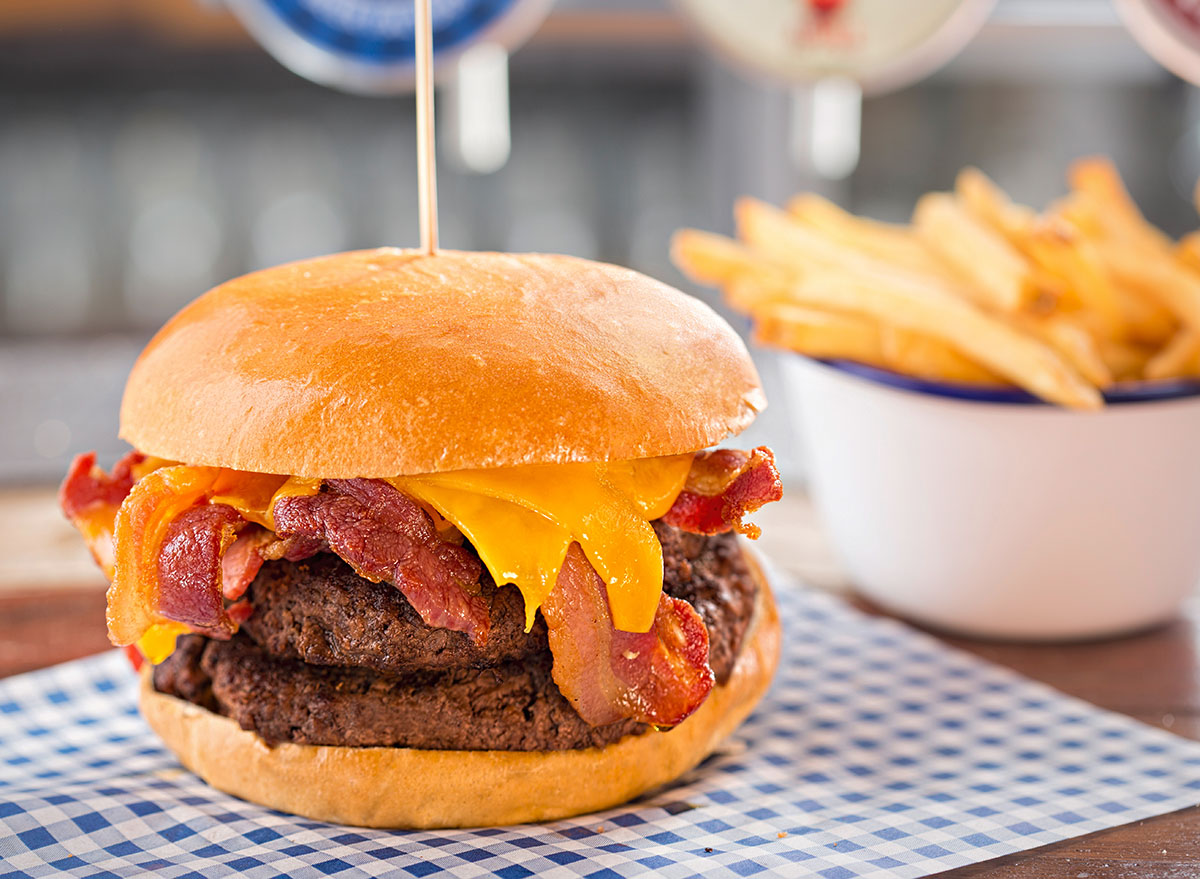
"There isn't a food I avoid entirely. One cheeseburger never killed anybody unless they choked on it," says Blase Carabello, MD, Professor and Chief, Division of Cardiology at East Carolina University Brody School of Medicine. "However, I do limit myself to one per month since the dish is high in heart disease-causing saturated fat and served in a processed bun made with refined carbohydrates." Even though an occasional cheat meal is one of the many doctor-approved weight loss tips, make sure to arm yourself with some cheat meal strategies before diving into that burger.
And for even more ways to drop those unwanted pounds, check out these 200 Best Weight Loss Tips.
